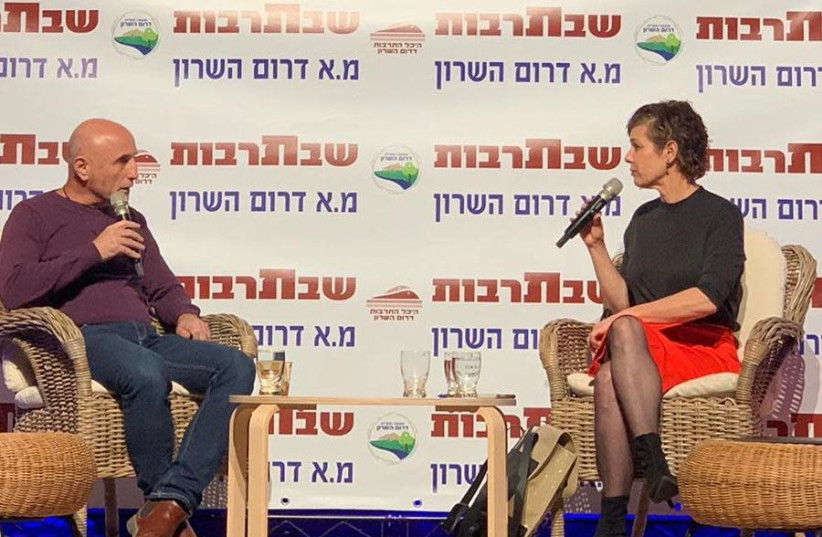On the morning of October 7, before any government agency or public institution said a word to the public, Israeli institutional media outlets were there, the first to report. They seemed to know what was happening and where even before the security forces did.
As soon as the terrorists entered Israel, we witnessed journalists from the south rescuing people from the inferno, news anchors speaking to people hiding from terrorists – helping them on air, broadcasters pleading for someone to come help the civilians.
This was hours before they were rescued alive. If they were rescued. If they were still alive.
Israel's media is reliable but not foolproof
The media earned well-deserved credibility that morning and became a trustworthy source for the Israeli public, a source people could rely on to verify information coming from other sources, such as social media.
But the media’s reliability is not foolproof. And as the war continues, more and more examples abound. During the first days of the war, for instance, the newspaper Israel Hayom published an article by an academic who blamed Arab society in Israel for Hamas’s actions; journalist Avri Gilad called for civilians to bear firearms; and Tzvi Yehezkeli, Channel 13’s Arab affairs correspondent threatened the residents of Gaza to leave the Strip.

Simultaneously, social media incitement against the Arab citizens of Israel continues to rage, academic institutions have been silencing critical voices, senior Arab physicians and additional health workers have been fired for “supporting terrorism” without as much as a hearing, the Justice Ministry published a memorandum of a law that prohibits even viewing “terrorist content,” and the communications minister is drafting an ordinance for imprisoning civilians who “harm the national morale.”
Now, more than ever, Israel’s media must fulfill its duty to protect democracy and defend the rights of the Arab minority and its freedom of speech in Israel. Our shared future is at stake.
LONG-TERM monitoring of Hebrew-language media and research on this issue reflects the significance of media representation – how the Arab citizens in Israel are portrayed in the media impacts the Jewish majority’s worldview, specifically on the relations between Jews and Arabs.
Although this has changed in recent years, Jewish and Arab citizens of Israel still live mostly in separate worlds – they go through separate education systems and live mostly in different towns, etc. Most of the Jewish public formulates its positions about the Arab minority through the way it is represented in the media. This is why media representation is now increasingly important.
The media must not only prevent incitement, it must properly challenge it and ensure we are able to exist together in this country. The media must cover, for example, shared aid initiatives carried out by Arabs and Jews, but this is not enough. Now is the time to amplify the voice of Arab citizens and allow their difficulties and fears to be heard as well.
While the media has done a wonderful job highlighting the voices of the victims of October 7 and their families and the fears many Jewish citizens face, Arab society is experiencing different kinds of fears that must be heard as well. Hamas rocket fire reached their towns and communities, which do not benefit from the same level of protection as Jewish towns and communities.
They also worry about the fate of their families and their people in Gaza and the West Bank, and, given the crackdown of the past few weeks, they fear saying anything about it on social media. A single word “out of line” or even a “like” or an image they post on social media places them in danger.
Dozens of Arab citizens have already been arrested by the police for supporting terrorism or on similar charges, simply because a word they posted on social media was misconstrued. A poignant example is Dr. Abed Samara, director of the Intensive Care ward in Sharon Hospital, who was suspended after his Facebook profile picture, a Muslim flag, was erroneously interpreted as a Hamas flag. The media has reported on some of these cases (see Haaretz’s editorial on Dr. Samara’s case) but has hardly covered the perspectives of the Arab citizens.
THE MEDIA must also fight political incitement. Prevent it. Decry it. Call it out and show the danger, with a zero-tolerance policy toward this ticking time bomb. And no, publishing a news item about an El Al flight attendant who was fired because she used the word shahid (martyr) on social media is not combating incitement but rather amplifying it. (Shahid also refers to innocent people being killed in conflict.)
Many Arab citizens fear being interviewed for fear of sweeping accusations and public shaming, especially when by nature the media discourse’s narrative is very “Jewish.” Despite the difficulty of locating Arab interviewees and the anticipated tensions of bringing them on the air, the media is obligated to bring precisely this voice of fear that is being silenced now, even if only through anonymous interviews for instance, and without judging those from the Arab society who are afraid of doing so.
When the war ends – and this could take a long time – Arabs and Jews will still live here together. People with different perspectives, some of which are very far from each other in one country. The healthcare system, education, hi-tech industries, cafés and restaurants, supermarkets and gas stations, and everywhere else we live our lives – we are together.
And while we managed to overcome obstacles in the past, we now face a powerful wave. If we underestimate this complexity, it will blow up in our faces. The media has the power to set boundaries.
The writer is the spokesperson for Hebrew media at Sikkuy-Aufoq, an advocacy organization that works to advance equality and a shared society between Israel’s Arab-Palestinian and Jewish citizens.
